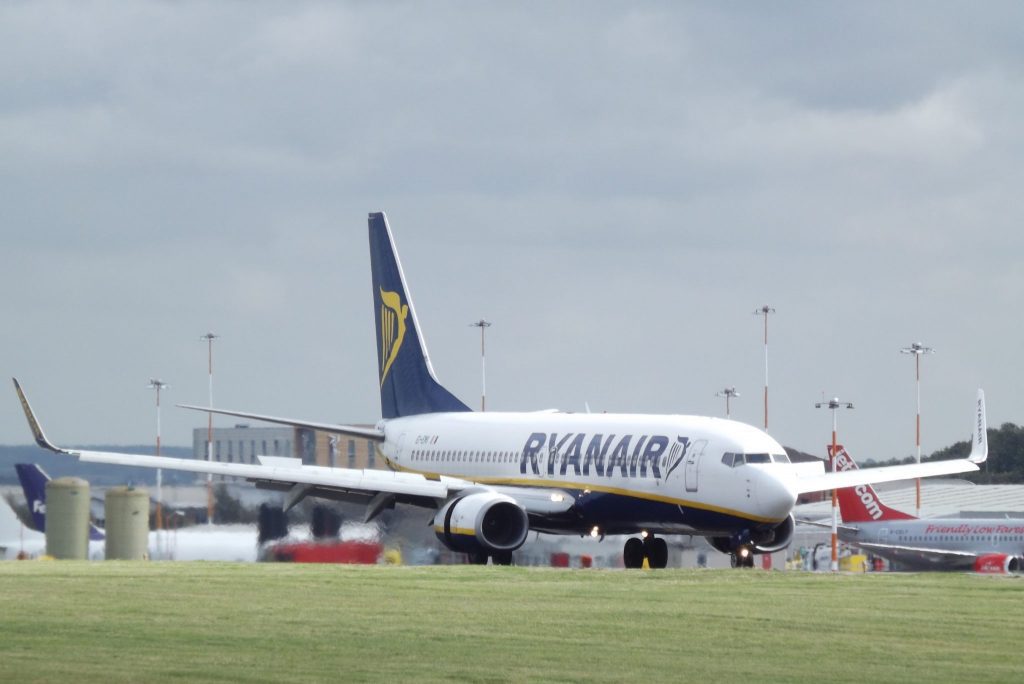Skift Take
If it's tough for Ryanair, you can imagine how difficult it is for other smaller airlines. With a new group structure, it will be interesting to see how big a part the Irish carrier plays in any consolidation over the course of 2019.
Ryanair will change its executive management structure with CEO Michael O’Leary relinquishing day-to-day control of its main Irish airline as it looks to create new cost efficiencies in what is becoming an increasingly tough aviation market.
The move, announced Monday, came on the same day the company slipped to a quarterly loss for the first time since 2014. The carrier made a pre-tax loss in the three months to the end of December of $95.7 million (€83.6 million,) compared with a profit of $129.3 million (€112.9 million) in the prior year.
A significant amount of this loss was down to start-up costs associated with Laudamotion, the Austrian-based airline it recently took 100 percent control of. Without this, Ryanair’s pre-tax loss was $25.3 million (€22.1 million.) Revenue (excluding Laudamotion) rose 9 percent to $1.75 billion (€1.53 billion.)
CEO O’Leary will become CEO of a larger Ryanair Group, which will include four subsidiaries: Ryanair DAC (the main airline,) Laudamotion, Ryanair Sun and Ryanair UK. Each of these airlines will have their own CEOs and management teams. O’Leary has signed a new five-year contract that will keep him in the role until at least July 2024.
“We think this group structure will enable us to deliver a cost and operating efficiency as each of these airlines will compete with each other for both capital allocations, aircraft to delivery and will also compete with each other to lower our cost,” the company said in a statement.
On an earnings call with analysts, O’Leary said he didn’t expect much to initially change with his job – at least over the next one or two years. The key appointment he said, would be getting a new CEO to run the main Ryanair airline.
“[T]he big opportunity for the next year or two certainly as a group of airlines is to encourage much more competition between Ryanair, Laudamotion, Ryanair Sun, to compete for aircraft as they can use those aircraft more profitably at lower cost than other airlines in the group,” he said.
The change in structure will also take O’Leary further away from union negations. In recent years the airline has suffered cancelations and delays because of labor unrest.
In another change, U.S. billionaire David Bonderman, who has served as chairman for more than two decades, will leave his post until summer 2020 before being replaced by Stan McCarthy, the former CEO of food company Kerry Group. Last year Bonderman faced criticism from some shareholders over his length of service.
European Consolidation
Ryanair executives have long pointed to overcapacity in the European short haul market and in recent months some of their predications have come true.
Primera Air went bankrupt and Norwegian has has to raise cash and radically scale back its growth plans. Plenty of other carriers are also struggling. A softening of oil prices has helped but a rise would spell disaster for many.
Low-cost rival Wizz Air also saw its profit slump in the winter quarter, dropping 88 percent to $1.9 million (€1.7 million.) Regional airline Flybe is currently pursuing a sale and German airline Germania has had to secure new short-term financing.
“We expect more closures and airline failures in 2019 due to overcapacity in the European market, which is causing continued fare weakness,” Ryanair said.
Interestingly, Ryanair’s proposed new management structure will enable it to “look at other small scale M&A opportunities” similar to what it did with Laudamotion, meaning it might end up player a much wider role in consolidation.
“In our view, Ryanair remains the long-term winner in the European airline industry, based on its leading market position, extensive network, low unit costs and strong balance sheet,” said analysts at stockbroker Liberum in a note to investors.
“We see tougher market conditions in the short term as positive for the stronger airlines in the long term, since this clears out weaker competitors and aids consolidation in the market.”
In January, Ryanair issued a profit warning and said it expected its full-year post-tax profit to be in the range of $1.1 billion to $1.3 billion, excluding Laudamotion.
The Daily Newsletter
Our daily coverage of the global travel industry. Written by editors and analysts from across Skift’s brands.
Have a confidential tip for Skift? Get in touch
Tags: europe, low-cost carriers, ryanair
Photo credit: A Ryanair jet at East Midlands airport in the UK. The airline slipped to a quarterly loss. James / Flickr
